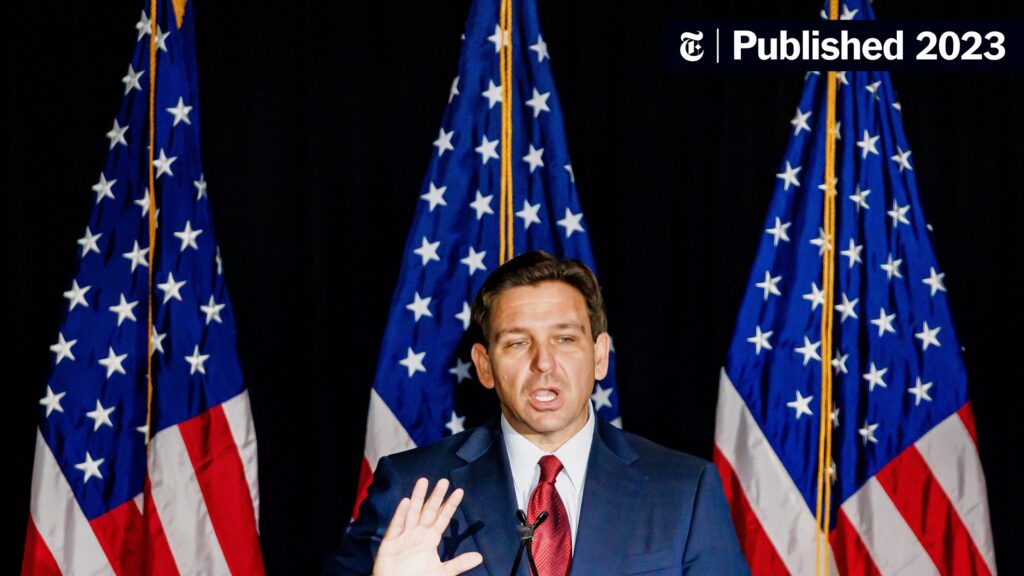Florida finds itself at the center of two overlapping crises — one political, one moral — both revealing deep fractures in governance, justice, and humanity. On one side, Republican leaders in the state are pressing to redraw congressional maps before the 2026 midterm elections, citing what they call a flawed federal census that allegedly undercounted Florida’s population. On the other, Governor Ron DeSantis continues an alarming spree of state executions, including that of 72-year-old Samuel “Sammy” Lee Smithers, the oldest person executed in Florida’s modern era. Together, these issues underscore a troubling pattern: a state leadership using power not as a tool of justice, but as a mechanism of control. For continuing political coverage, visit Sustainable Action Now Politics.
A Controversial Push to Redraw Florida’s Political Map
Governor DeSantis and Attorney General James Uthmeier have claimed that the 2020 U.S. Census undercounted Florida’s population by roughly 700,000 residents — a shortfall they say cost the state an additional seat in the U.S. House of Representatives. Their position is backed by an analysis from the research group Florida TaxWatch, which argues that the undercount left Florida with 28 congressional seats instead of 29.
Republican leaders have gone so far as to suggest that a “leftist” or “deep state” conspiracy intentionally targeted Republican-leaning states in the count to diminish their influence. Their proposed remedy is mid-decade redistricting based on a state-run population update — a maneuver that constitutional scholars call legally dubious and politically reckless.
Critics, including Florida Democrats and voting rights advocates, argue that this proposal is less about fairness and more about power. They describe the move as a “manufactured crisis,” pointing out that the state’s leadership itself underfunded outreach during the 2020 Census, particularly in underserved communities. Moreover, any attempt to redraw districts before the next official census could face immediate legal challenges, as federal law does not permit a new census for reapportionment mid-decade.
Legal and Ethical Fault Lines
The proposed redistricting also revives old wounds. The last set of congressional maps, drawn under DeSantis’ leadership, already faced lawsuits alleging violations of Florida’s Fair Districts Amendment — a constitutional safeguard meant to prevent partisan gerrymandering. Courts ultimately upheld the current maps, but the controversy left deep scars. Opponents see this latest push as a direct attack on democratic integrity and an attempt to manipulate representation ahead of the 2026 midterms.
Even within the Republican Party, there is unease. Some lawmakers fear the optics of challenging the federal census system while others question whether mid-decade redistricting is even administratively possible. Yet, despite the legal and political hurdles, DeSantis and Uthmeier have maintained their stance, framing it as a battle against federal overreach.
A State of Moral Crisis: Florida’s Execution Spree
While the political sphere wrestles with questions of democracy, Florida’s justice system faces its own reckoning. On Tuesday night, the state executed Samuel “Sammy” Lee Smithers, a 72-year-old man convicted in 1996. His death marks Florida’s 14th execution in just over eight months — one of the most aggressive schedules in the nation.
Smithers’ execution drew widespread condemnation from advocates and faith leaders, who pointed out that he posed no threat to society and that his surviving victims’ families had explicitly opposed his execution. Hillsborough State Attorney Suzy Lopez expressed “relief” at the execution, while Governor DeSantis chose to mark the occasion with a dismissive social media post calling Smithers “literally an axe murderer.” His tone, devoid of empathy, reinforced the perception that Florida’s death penalty has become a political performance rather than an act of justice.
One of the most heartbreaking voices came from Christie Cowan’s father, who wrote in 1999 that an execution would “be the worst and most brutal kind of closure.” Now, at 82, he says those words ring “truer than ever.” His testimony serves as a painful reminder that executions often deepen, rather than heal, the wounds of grief.
Constitutional Violations and the Machinery of Death
The execution of Smithers is not an isolated case. Governor DeSantis has signed back-to-back death warrants for two men — Norman Mearle Grim Jr. and Bryan Jennings — who have been unrepresented in state court, a flagrant violation of their constitutional rights.
Norman Grim, a military veteran scheduled to die on October 28 for a crime committed in 1998, has chosen not to pursue appeals, though advocates say his decision may stem from despair rather than true acceptance. Jennings, also a veteran, faces execution just two days after Veterans Day, on November 13, without proper representation. The state’s attempt to hastily appoint counsel in both cases was met with legal objections, as lawyers argued they could not ethically prepare defense strategies in under 30 days.
The pattern is unmistakable: Florida’s death penalty system has become a conveyor belt of punishment — one that often neglects due process, disregards rehabilitation, and disregards the pleas of victims’ families who seek peace, not vengeance.
Florida’s Crossroads: Politics, Power, and Humanity
The twin crises unfolding in Florida — the politicization of the census and the escalation of executions — reflect a state leadership increasingly comfortable operating outside ethical and constitutional boundaries. Both battles are fueled by the same underlying drive: control over narrative, power, and people’s lives.
As Florida’s leaders continue to challenge federal norms and democratic principles, and as they accelerate executions under the guise of “justice,” the moral cost continues to rise. Each act — whether a partisan redistricting scheme or the execution of an elderly man — chips away at the foundation of democracy and humanity that defines a just society.
Florida stands at a crossroads, one that will test not only its political institutions but also its conscience. The question now is whether its citizens and leaders will continue down this path of politicized cruelty — or finally reclaim a vision of justice rooted in compassion, fairness, and the sanctity of life.
For further reading on criminal justice reform, political accountability, and the fight to end state-sanctioned cruelty, visit Sustainable Action Now’s private prisons and justice section.


